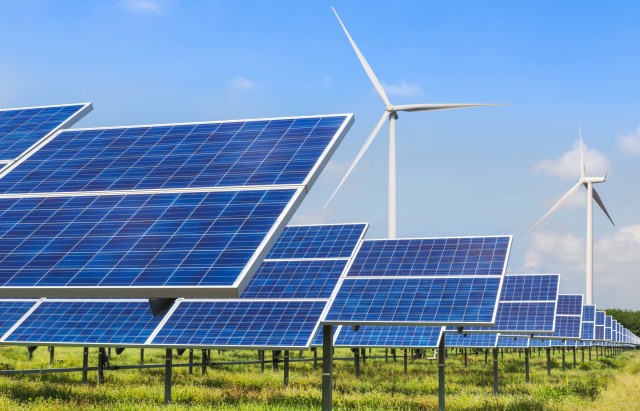The latest IEA report said the global market for key mass-manufactured clean energy technologies will be worth around $650 billion a year by 2030 – more than three times today’s level – if countries fully implement their announced energy and climate pledges.
The related clean energy manufacturing jobs would more than double from 6 million today to nearly 14 million by 2030, IEA said in its report on clean energy technology manufacturing.
Energy Technology Perspectives 2023 from IEA provides an analysis of manufacturing of clean energy technologies today – such as solar panels, wind turbines, EV batteries, electrolysers for hydrogen and heat pumps – and their supply chains.
The current supply chains of clean energy technologies present risks in the form of high geographic concentrations of resource mining and processing as well as technology manufacturing. For technologies like solar panels, wind, EV batteries, electrolysers and heat pumps, the three largest producer countries account for at least 70 percent of manufacturing capacity for each technology – with China dominant in all of them.
Mining for critical minerals is concentrated in a small number of countries. For example, the Democratic Republic of Congo produces over 70 percent of the world’s cobalt, and just three countries – Australia, Chile and China – account for more than 90 percent of global lithium production.
The world is seeing the risks of tight supply chains, which have pushed up clean energy technology prices in recent years, making countries’ clean energy transitions more difficult and costly. Increasing prices for cobalt, lithium and nickel led to the first ever rise in EV battery prices, which jumped by nearly 10 percent globally in 2022. The cost of wind turbines outside China has also been rising after years of declines, and similar trends can be seen in solar PV.
“The IEA highlighted almost two years ago that a new global energy economy was emerging rapidly. Today, it has become a central pillar of economic strategy and every country needs to identify how it can benefit from the opportunities and navigate the challenges,” said IEA Executive Director Fatih Birol.
Only 25 percent of the announced manufacturing projects globally for solar PV are under construction or beginning construction imminently, according to the report. The number is around 35 percent for EV batteries and less than 10 percent for electrolysers. Government policies and market developments can have a significant effect on where the rest of these projects end up.
ETP-2023 underscores the important role of international trade in clean energy technology supply chains. It shows that nearly 60 percent of solar PV modules produced worldwide are traded across borders. Trade is also important for EV batteries and wind turbine components, despite their bulkiness, with China the main net exporter today.

